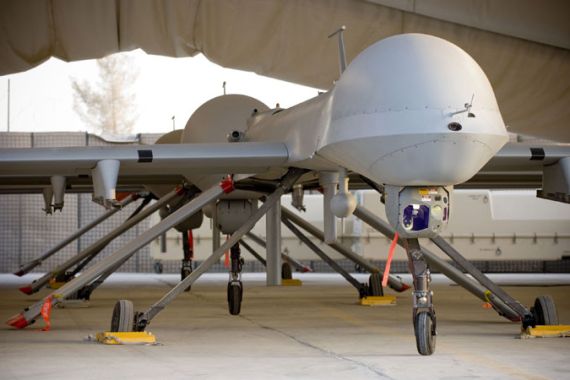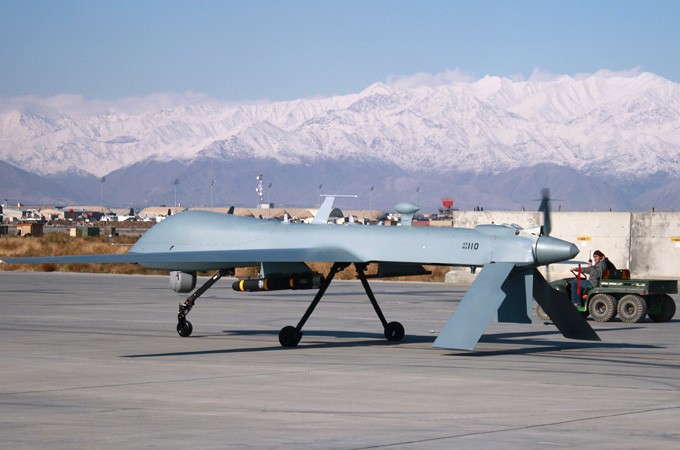Pakistani Taliban leader ‘killed’
Local media report that October 2 drone strike killed a senior commander of the Tehreek-e-Taliban in North Waziristan.

 |
| Pakistani officials say nine people were killed in two suspected US drone attacks on villages in North Waziristan [AFP] |
A senior military commander of the Pakistani Taliban was been killed during a suspected US drone attack earlier this month, local media has reported.
The GEO TV news channel on Friday cited intelligence officials as saying that Qari Hussain died after a US missile attack on October 2nd in the Datta Khel area of North Waziristan.
Hussain was reportedly an expert in preparing suicide jackets and training bombers to carry out attacks.
However, a Taliban spokesman has denied his death, and the US has not confirmed it either. Hussain was previously reported dead by Pakistani officials after a drone attack last year.
Serious blow
Asad Durrani, a former head of Pakistan’s Inter-Services Intelligence agency (ISI), told Al Jazeera that if Hussain had been killed, this would be a serious blow for the Taliban.
“Someone like him [Hussain], known as the teacher of the suicide bombers, if he is dead and the successors are not as good this would not be good for them,” Durrani said.
“But this has happened three times in the past – that reports of his death came in and were later reported wrong.”
Meanwhile, Pakistani intelligence officials said that at least nine people had been killed in two suspected US drone attacks on villages in North Waziristan in 24 hours.
The officials said three were killed on Friday during the first missile strike, which hit a vehicle in Machi Khel and the dead were not yet identified. The village is believed to be home a mix of Afghan Taliban and local Pakistani fighters.
The second attack occurred several hours later, killing six suspected fighters at a house in the village of Aziz Khel.
The US does not publicly acknowledge the drone strikes in Pakistan, but US officials have said privately that they have killed several senior Taliban and al-Qaeda commanders.
Strikes escalating
It has sharply escalated its use of unmanned drone missile strikes targeting fighters in Pakistan’s border region in the last two months.
Durrani told Al Jazeera that the drone attacks are part of a very uncomfortable arrangement for Pakistan and it is “paying a very high price for this relationship in which we have allowed them to carry out certain things”.
He said that Pakistan was a “partner in this crime and our justification is dependence on the US and the political relationship”.
“We can resist doing something which the US would like us to do – like carry out a big military operation in North Waziristan.”
Also on Saturday, Pakistan defended its military policy in the northwest of the country, amid tensions in its relationship with the US.
Taliban bases
In a statement issued by the foreign ministry, Islamabad declared that there was no “lack of Pakistani resolve to fight terrorism”.
A leaked White House report to Congress earlier this month accused Pakistani forces of avoiding “direct conflict” in North Waziristan, while saying that ground operations in South Waziristan were only progressing “slowly”.
Taliban fighters, battling more than 150,000 US and Nato troops of the International Security Assistance Force (Isaf) in Afghanistan, are believed to be holed up in the tribal region.
Under US pressure to crack down on these fighters, Pakistan sent 30,000 troops into South Waziristan last year to destroy Taliban strongholds in the area, but no similar offensive has been mounted in North Waziristan.
The foreign ministry said in a statement: “While we understand Isaf concerns, any question relating to when, how and what is to be done in North Waziristan is based on judgment, keeping in mind our capacities, priorities and overall national interest.
“This in no way should be interpreted as lack of Pakistani resolve to fight terrorism.”